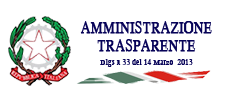Pergolizzi Luca
Ultimo aggiornamento: 27 Novembre 2023
Pergolizzi Luca
titolari-borse-di-studio

Scienze Motorie
Attività di Ricerca
Nel corso della mia attività di ricercatore in qualità di chinesiologo, specializzato in scienze e tecniche delle attività motorie preventive e adattate, ho acquisito competenze specifiche in ambito riabilitativo e ricerca scientifica in pazienti affetti da patologie come Sclerosi Multipla, Morbo di Parkinson, Stroke, Sindrome Atassica e Corea di Huntington. Presto servizio presso il C.A.R.EN (Computer Assisted Rehabilitation Environment), dove ho avuto modo di approfondire le caratteristiche specifiche di ogni device presente in struttura, apprendendo competenze teoriche e pratiche sul loro impiego. La Realtà Virtuale (RV) costituisce un approccio innovativo e promettente per la riabilitazione cognitivo-motoria, trasmettendo in tempo reale stimoli sensoriali (visivi, uditivi, tattili e vestibolari) isolati e combinati. Tutto ciò mi ha permesso di migliorare la gestione e programmazione dell’attività motoria adattata nel paziente con patologie neurologiche. Insieme al team di ricerca analizziamo la letteratura scientifica in merito ai risultati raggiunti in ambito riabilitativo e individuare ipotesi di studio che mirino al progresso o al miglioramento degli interventi terapeutici messi in atto. La finalità dei protocolli e dei programmi sviluppati è la creazione di tecniche di riabilitazione innovative.
Aree di interesse
Neuroriabilitazione robotica con realtà virtuale
Research Activities
In the course of my research activity as a kinesiologist, specializing in science and techniques of preventive and adapted motor activities, I have acquired specific skills in rehabilitation and scientific research in patients suffering from pathologies such as Multiple Sclerosis, Parkinson's Disease, Stroke, Ataxic Syndrome and Huntington's Chorea. I am actually working at C.A.R.EN (Computer Assisted Rehabilitation Environment), where I have had the opportunity to learn more about the specific characteristics of each device in the facility, learning theoretical and practical skills on their use. Virtual Reality (VR) constitutes an innovative and promising approach for cognitive-motor rehabilitation, transmitting sensory stimuli (visual, auditory, tactile and vestibular) isolated and combined in real time. All this has allowed me to improve the management and programming of adapted motor activity in the patient with neurological diseases. Together with the research team, we analyze the scientific literature regarding the results achieved in the rehabilitation field and identify hypotheses for studies aimed at advancing or improving the therapeutic interventions implemented. The purpose of the protocols and programs developed is the creation of innovative rehabilitation techniques.
Areas of interest
Robotic neurorehabilitation with virtual reality



